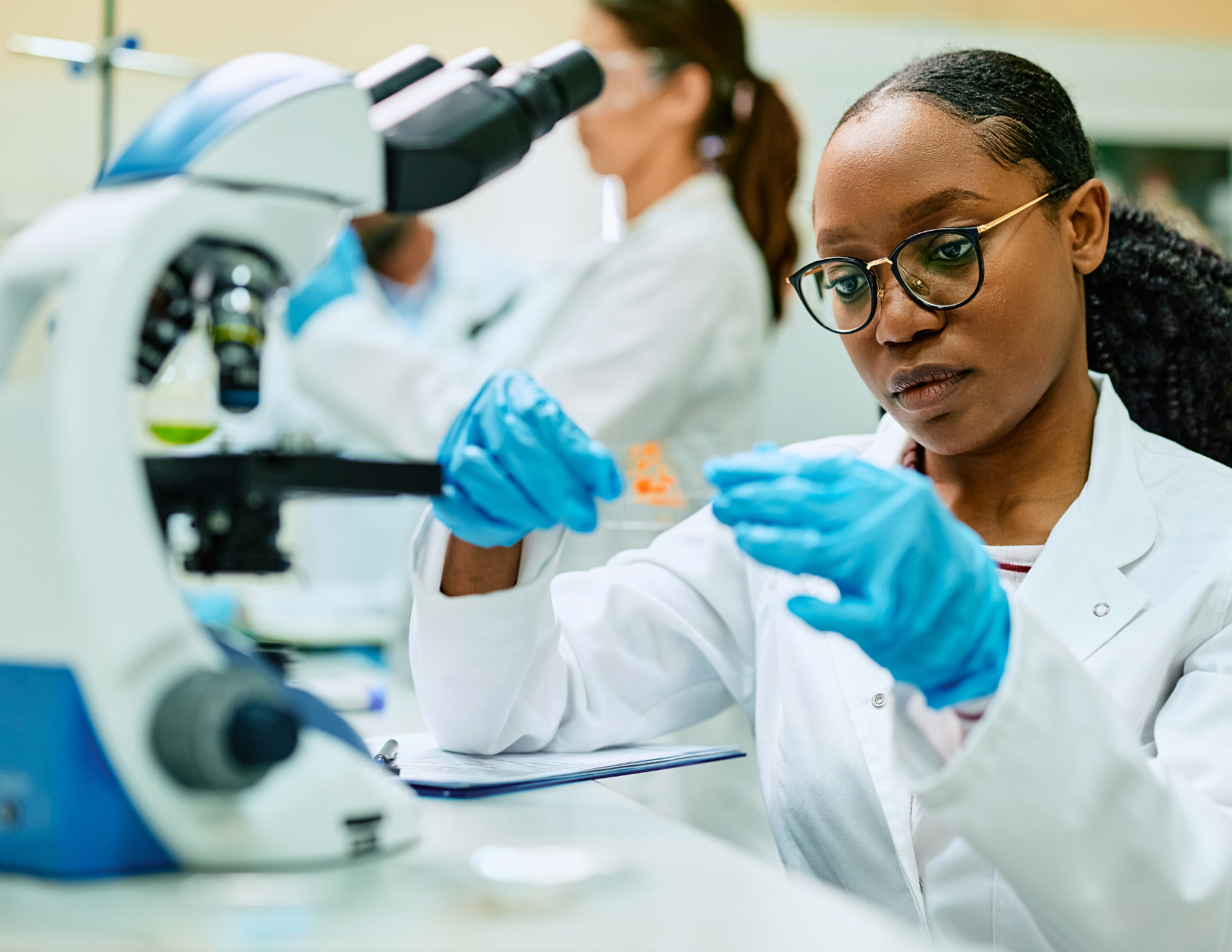See Yourself IN Life Sciences: Innovating for Health and Well-Being

Do you see yourself in a career that helps people live longer, healthier lives? Are you fascinated by science, medicine, or technology? Do you want to be part of the next breakthrough in healthcare or drug development? If so, a career in life sciences might be for you!
What are life sciences?
Life sciences are a dynamic and fast-growing field that focuses on understanding living organisms and using that knowledge to improve human health and well-being. Careers in this industry range from researching new medicines to developing medical devices, improving food safety, and advancing biotechnology. Whether it’s creating new treatments for diseases, engineering artificial organs, or analyzing genetics to prevent illnesses, life sciences professionals are shaping the future of healthcare and innovation.
Why choose a career in life sciences?
Indiana is a national leader in the life sciences industry, with more than 2,700 companies contributing over $77 billion to the state’s economy. Life sciences careers offer excellent job stability, competitive salaries, and the opportunity to make a direct impact on people’s lives. This field is also at the cutting edge of technology, incorporating artificial intelligence, data science, and robotics to revolutionize healthcare solutions.
From working in laboratories to designing medical devices to improving agricultural biotechnology, there’s no shortage of opportunities to make a difference.
Career Paths in Life Sciences
The life sciences field spans multiple disciplines, providing various career opportunities. If you’re interested in biology, chemistry, technology, or healthcare, consider these exciting careers:
- Biochemist – Study chemical processes and substances within living organisms to better understand biological functions and develop innovative solutions in medicine and agriculture.
- Biomedical Engineer – Combine biology and engineering to design and develop things like medical devices, artificial organs, diagnostic tools, and other equipment and technologies that improve healthcare.
- Bioinformatics Specialist– Use computer sciences and biology to analyze data, like genetic sequences, to understand diseases and develop treatments.
- Biostatistician – Use math and statistics to study biological data, helping with medical research and public health programs.
- Biotechnologist – Use living organisms to develop new products in healthcare, agriculture, and environmental science.
- Clinical Laboratory Scientist – Conduct lab tests on blood, tissue, and other samples to help doctors diagnose and treat patients.
- Clinical Research Coordinator– Organize and oversee medical studies, ensuring new treatments and medicines are tested safely and effectively.
- Environmental Scientist – Study environmental problems like pollution and climate change to protect ecosystems and human health.
- Forensic Scientist – Analyze biological samples for crime investigations and legal cases, for example fingerprints or DNA.
- Genetic Counselor – Analyze genetic data to help patients understand inherited conditions and potential health risks.
- Health Informatics Specialist – Combine healthcare and technology to organize and analyze medical data, improving patient care and decision-making.
- Industrial Hygienist – Identifies and addresses workplace hazards to ensure a safe and healthy environment for workers.
- Laboratory Technician – Prepares and performs experiments in labs to support scientific research and medical discoveries.
- Life Science Analyst – Study trends and data in biology, biotechnology, and healthcare to guide companies and research projects.
- Medical Laboratory Scientist – Perform tests to diagnose diseases and develop treatments.
- Medical Science Liason – Act as a link between pharmaceutical companies and healthcare providers, sharing information about new medicines.
- Microbiologist – Study bacteria, viruses, and other microorganisms to improve public health and disease prevention.
- Pharmaceutical Scientist – Research and develop new medications to treat various health conditions.
- Quality Control Analyst – Test pharmaceutical and biotech products to ensure they meet safety and efficacy standards.
- Regulatory Affairs Specialist – Ensure new medical products and drugs meet safety standards before reaching the public.
- Tissue Engineer – Work on growing tissues and organs in laboratories for medical applications.
- Toxicologist – Study the effects of chemicals on living organisms to determine if they are safe or harmful.
Visit BioCrossroads' Career Hub to explore more careers in life sciences!
How to get there:
If you're interested in exploring life sciences further, there are many ways to prepare for a career in this exciting field. Start by taking science courses such as biology, chemistry, and physics to build a strong foundation. Getting involved in STEM clubs, science fairs, or research programs can provide hands-on experience and deepen your understanding. Additionally, seeking internships or job-shadowing opportunities in laboratories, hospitals, or biotech companies can offer valuable real-world exposure. Consider exploring degree programs in biomedical sciences, biotechnology, or pharmaceutical studies to further your knowledge and career prospects.
BioCrossroads: Indiana's Life Sciences Hub
BioCrossroads is Indiana’s leading initiative for life sciences innovation, connecting students, educators, and businesses to career opportunities in this growing industry. Whether you’re interested in pharmaceuticals, medical devices, or agricultural biotechnology, BioCrossroads provides resources and networking opportunities to help students like you discover their path in life sciences.
Click here to learn more about BioCrossroads and explore career opportunities in life sciences.
Do you see yourself in life sciences?
The life sciences industry is rapidly evolving, with constant advancements in medicine, genetics, and technology. Careers in this field are both rewarding and impactful, offering the chance to improve lives and contribute to groundbreaking discoveries. Whether you’re drawn to research, engineering, or healthcare innovation, there’s a place for you in life sciences!
Life sciences offer endless possibilities for those passionate about making a difference in health, technology, and sustainability. Could this be the career path for you?
